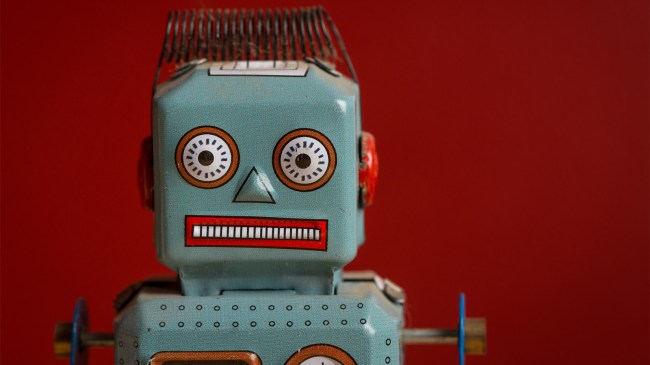
iStockphoto
It sounds like something out of a horror movie. “Robot metabolism” is a process that occurs when robots consume other, smaller robots to heal, grow, and evolve. And it is a real thing that exists now, thanks to scientists who apparently aren’t very worried about the human race succumbing to robot overlords in the not-so-distant future.
The scientists, from Columbia University, came up with this process with a little help from the Defense Advanced Research Projects Agency (DARPA) and the National Science Foundation (NSF). They say it is a yet another big step towards full robot autonomy, which, at least according to them, is a good thing.
“True autonomy means robots must not only think for themselves but also physically sustain themselves,” Philippe Martin Wyder, lead author and researcher at Columbia Engineering and the University of Washington, said in a statement. “Just as biological life absorbs and integrates resources, these robots grow, adapt, and repair using materials from their environment or from other robots.”
But, why?
The scientists, whose work on this project was published in the journal Science Advances, say they “envision future robot ecologies where machines independently maintain themselves, growing and adapting to unforeseen tasks and environments.” They claim that robot metabolism could eventually lead to “autonomous robots capable of physical development and long-term resilience.”
Yay?
“Robot metabolism provides a digital interface to the physical world and allows AI to not only advance cognitively, but physically — creating an entirely new dimension of autonomy,” said Wyder. “Initially, systems capable of robot metabolism will be used in specialized applications such as disaster recovery or space exploration. Ultimately, it opens up the potential for a world where AI can build physical structures or robots just as it today writes or rearranges the words in your email.”
Why yes, it does sound a bit terrifying
“The image of self-reproducing robots conjures some bad sci-fi scenarios,” said Hod Lipson, study co-author and chair of the Department of Mechanical Engineering at Columbia University. “But the reality is that as we hand off more and more of our lives to robots – from driverless cars to automated manufacturing, and even defense and space exploration. Who is going to take care of these robots? We can’t rely on humans to maintain these machines. Robots must ultimately learn to take care of themselves.”